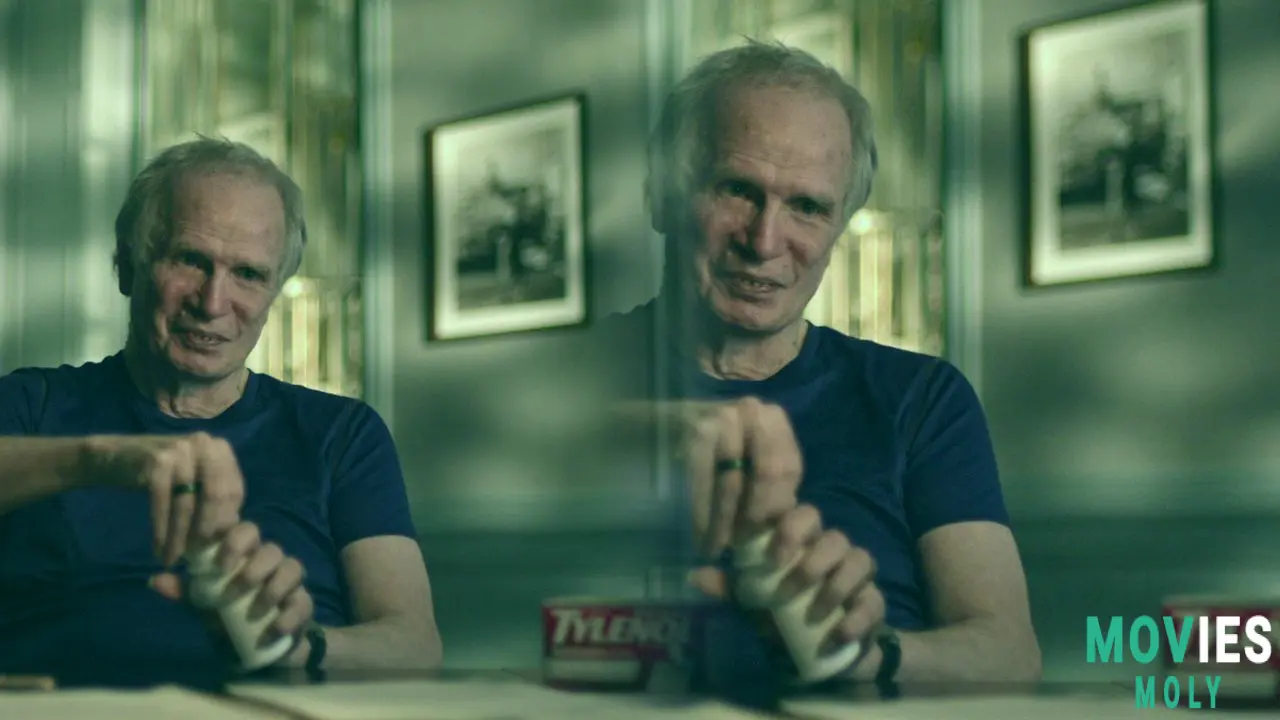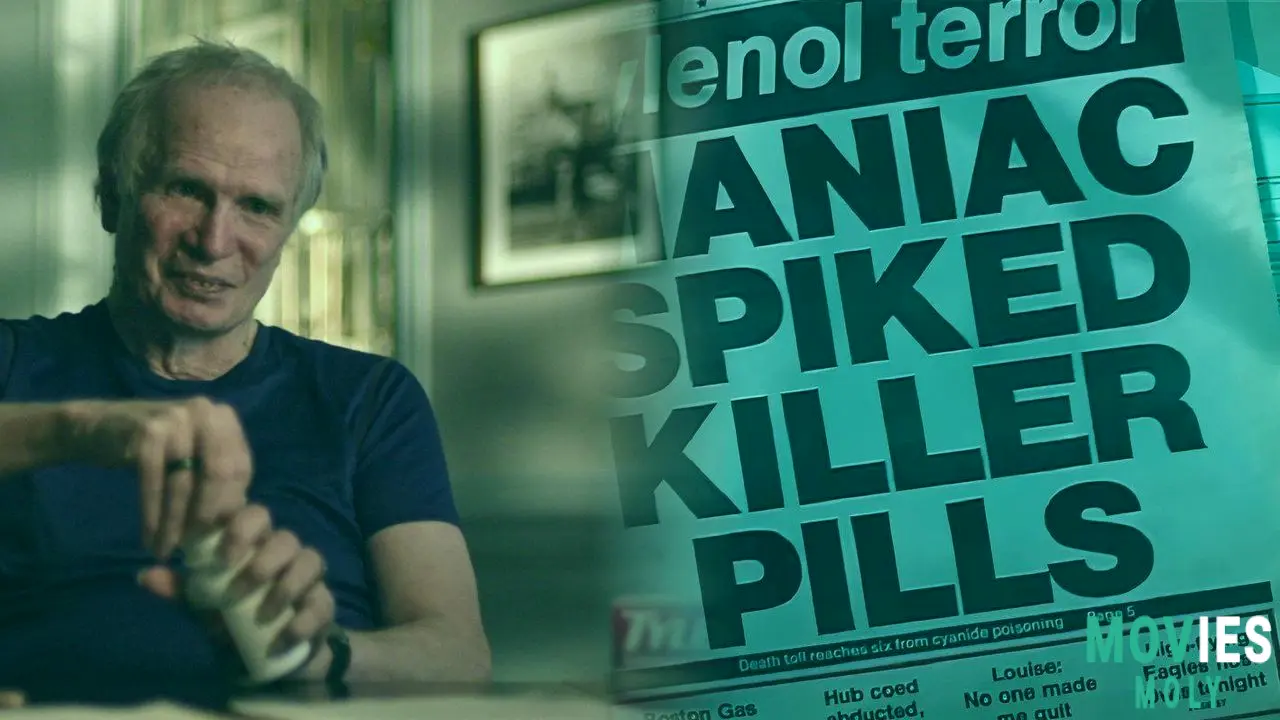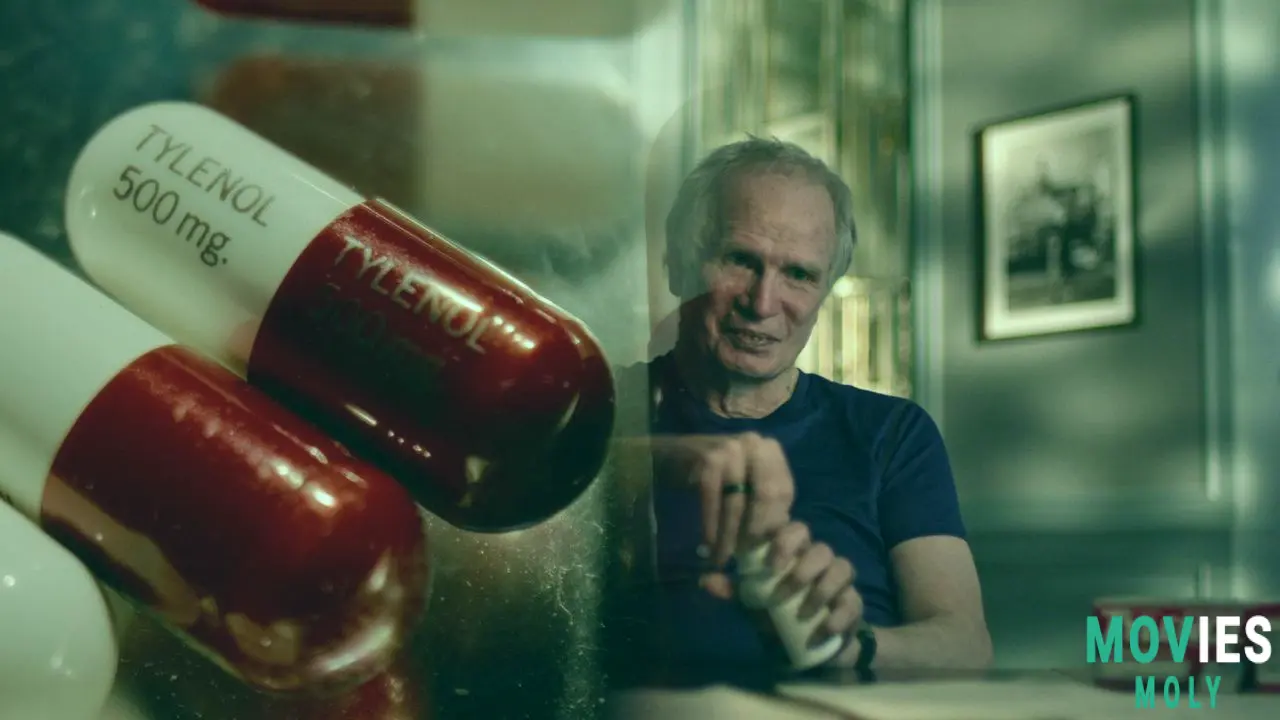If you are anything like me, you probably do not even think about it when you unwrap a new bottle of medicine. We just expect to see that safety seal, right? Well, that simple layer of protection exists because of a terrifying series of events that happened in the fall of 1982. Around Chicago, a string of sudden deaths sent the country into pure panic. The victims all had one thing in common: Each had taken Tylenol capsules. These capsules were secretly filled with cyanide. This shocking story is now being told in a new Netflix series. It is called Cold Case: The Tylenol Murders, and it has quickly jumped to the top of the charts in the US.
This three-part series looks closely at a case that truly shocked the nation. It also pushed for huge changes in consumer safety laws. And even after more than four decades, the case remains officially unsolved. Directed by Yotam Guendelman and Ari Pines, with true crime veteran Joe Berlinger as an executive producer, this series is a hard watch because of how upsetting it is. It is the latest addition to Netflix’s Cold Case series, and this time, it shows how a trusted household brand became a weapon. It is a scary thought.
The show goes back over the chaos that followed the deaths of at least seven people. They had all taken Extra-Strength Tylenol that was unknowingly poisoned. This was a crime with no warnings. It caused such widespread fear that store shelves were emptied all over the country. Public trust in brands was deeply shaken. For the first time, Americans had to think about a truly uncomfortable question: Could something as normal as a bottle of painkillers be deadly?
The Chilling Interviews and Unexplored Theories That Drive the Netflix DocuseriesHow New Perspectives Bring The Unsolved Tylenol Murders Into A Different Light
The new series does more than just revisit the past. It goes deeper. It includes interviews with important people involved in the investigation. It also looks at theories that were put aside for a long time. It even finds problems in the official story. The show even goes into the mindset of a main suspect who has been linked to the case for years but has never been officially charged. This is a very important part of the series. The show manages to do something no other true crime story on this case has done.
One of the most chilling parts happens early on. A first responder talks about the scene where two of the victims collapsed. His voice alone shows how scary it was to realize that taking medicine could become fatal in minutes. The directors say their goal was to widen the view on a case that has often been shown as simple and closed. Their series brings in new accounts and re-examines important details. It makes us ask: Was this the work of one disturbed killer? Or is there a bigger story hidden under decades of missed clues? After these killings, big changes happened. Things like tamper-proof packaging, federal laws about product tampering, and a lasting shift in how we think about everyday items on store shelves became normal.
This is where Cold Case: The Tylenol Murders stands out. It includes the only full interview with James Lewis. He was the main suspect in the Tylenol murders. Some true crime fans might know his name. But they will still find a lot of new information in this Netflix series. Lewis had plenty of indirect evidence against him. Police found he was involved in credit card fraud and identity theft. He had drafts of extortion letters. He also had a book about poison. Some thought he had a reason to target Johnson & Johnson. A company connected to them made a faulty patch used in his daughter’s heart surgery. He even said he wrote the extortion letter before the story broke when talking to an FBI agent, though he quickly changed his story.
James Lewis's Exclusive Interview And The Mystery Surrounding His Involvement

Unpacking The Confusing Statements From The Main Suspect In The Tylenol Poisonings
Despite all this, the only crime the FBI could prove he committed was writing an extortion letter to Johnson & Johnson. He demanded they give $1 million to stop the killings. During Cold Case: The Tylenol Murders, Lewis explains why he wrote the letter. He claimed he learned about the murders and used his enemy’s bank number in the letter. He thought police would focus on the other man. He also said he did not even think it was extortion because he was not the one getting the money. If we believe him, he was very foolish, but not a killer. This makes his interview so important. We get to hear his side directly, even if it leaves us with more questions.
Getting James Lewis to talk for the Netflix series was not easy. He had refused interviews before. Producer Molly Forester is credited with getting Lewis to agree. Journalists had tried to get him to speak about the case, but only Forester got him to open his door. From there, it took a whole year of convincing him they would treat him like a person. Forester told him, "You’re a human being. We want to talk to you as a human being — even if you did all of this horrible stuff." The filmmakers also promised him he would get to tell his story. He died in 2023, not long after this interview was recorded. This makes his words in the series truly his last public statements on the case.
The series balances Lewis's interview with the voices of the victims' families. Investigators in the case share their views based on their experiences. The filmmakers look at his possible guilt from all sides. They do not label him guilty or innocent. Instead, they let the people directly harmed by the case speak. This is a very good approach for true crime stories. It shows respect for those who suffered the most. The family members are given plenty of time to talk about the case and the investigation. The first episode begins with a first responder, a brother, and a niece sharing how they learned about the murders and how they coped. The last episode ends with a family member asking for the investigation to stop focusing on James Lewis, now that he is gone, and to look for other clues instead. The many interviews make this series one of the most interesting and important sources of information on this tragic cold case.
The Lasting Impact Of The Tylenol Murders On Safety And Public Trust

How A Single Crime Reshaped How We Interact With Everyday Products Forever
The 1982 Tylenol poisonings killed seven people in the Chicago area. The unknown killer bought Extra-Strength Tylenol from six different stores. They filled the capsules with large doses of deadly potassium cyanide. Then, they put the bottles back on the shelves. This act changed consumer products forever. After the tragedy, Johnson & Johnson brought Tylenol back with triple-sealed packaging. This was for extra safety. Congress also passed the "Tylenol bill" in 1983. This made it a federal crime to tamper with packaging. Today, every tamper-proof seal is a reminder of that dark moment. It shows how poison turned an everyday medicine into a murder weapon, changing consumer industries permanently.
The lack of a clear answer in the case has frustrated victims' families for a long time. Some investigators still believe James Lewis will always be the main suspect. Others are not so sure. The series shows other possible theories, including some supported by the victims' loved ones. For instance, another suspect, Roger Arnold, was looked into after he reportedly threatened to poison others. He also knew some victims and allegedly had cyanide at his home. However, DNA evidence later ruled him out. This shows how complicated the investigation was, and how hard it was to find a clear path to an answer.
One of the directors, Yotam Guendelman, believes there might have been more victims who were not found. He explained that cyanide is a perfect crime because it dissolves quickly. If it were not for one specific doctor who realized these people were poisoned, nobody would have known it was not a natural death. This theory suggests that the true number of victims might be higher. This is a chilling thought. It also makes the call for unsealing all investigation documents even more urgent.
The directors hope that by making this film, it will help bring closer to finding the truth. They believe someone knows more. They hope that person will see the film, see the families, and come forward. Every cold case needs to be closed for the families involved. The Tylenol murders remind us all of how quickly trust can be broken. It also reminds us that sometimes, even with huge efforts, justice can remain out of reach. It is a story that continues to resonate today.



